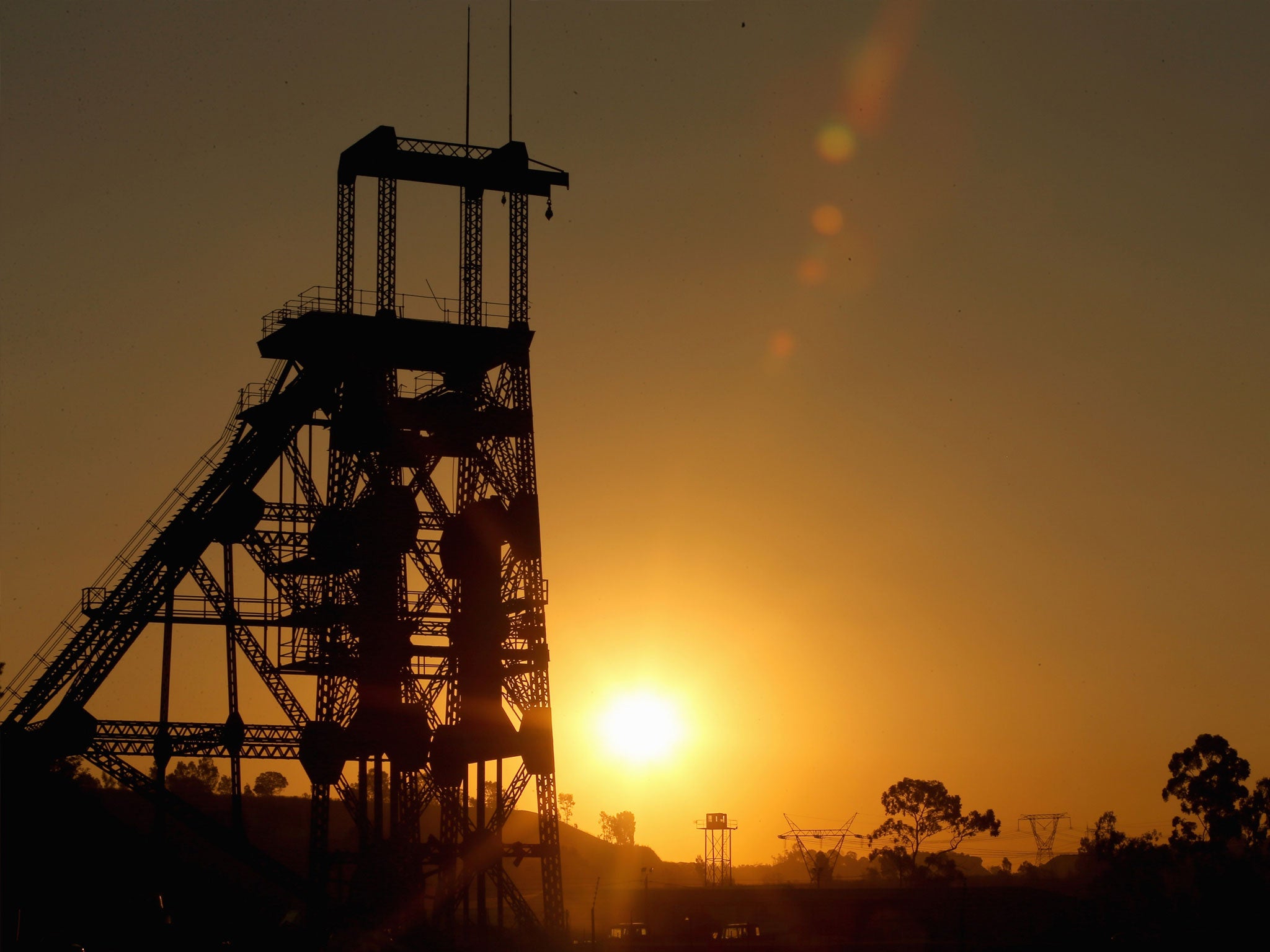Nearly 1,000 miners trapped underground in South Africa after power outage
Thunderstorms blamed for bringing down power lines near site

Around 900 miners are trapped underground in South Africa after a power outage, according to the mine operator.
The workers are stuck in the Beatrix gold mine near the city of Welkom, in central Free State.
Thunderstorms were blamed for bringing down power lines near the site, leaving the miners stranded in tunnels and shafts.
Around 60 of those were rescued overnight but 900 are still trapped underground.
James Wellsted, a spokesman for the site's owner, Sibanye-Stilwater, told local media the miners were safe and were receiving food and water.
He said power was being restored but there was not yet enough to bring the miners to the surface.
“We’ve currently got generators there and we are trying to link them up to the hoist in order to bring the people to surface, but we are experiencing some difficulties with the circuit that may be linked to the surge relating to the storm and the power issue,” he said.
A spokeswoman for South Africa's Mineral Resources Department told The Independent health and safety inspectors were on site providing support.
South Africa produces around 10 per cent of the world's gold and is home to its deepest mines, with workers often operating more than two miles beneath the surface.
Joseph Mathunjwa, president of the Association of Mineworkers and Construction Union, said the incident raised “serious concerns regarding the lack of emergency plans at the mine”.
“Lives might already be threatened due to dehydration and blood sugar issues because of a lack of nutrition,” he said.
“It is also quite common for adults to be on chronic medication, and it is highly probable that there are some workers who are trapped without access to medicine.”
Dozens of miners are killed each year in mineral-rich South Africa. Many are migrant workers lured from elsewhere in Africa with the promise of jobs.
The number of miners killed rose in 2017 for the first time in almost a decade, up from 73 a year earlier to at least 82.
South Africa's government has strived to make the industry improve an appalling safety record but unions say the death toll is still too high.
Under apartheid, hundreds died in mining accidents annually.
Thirty one miners were killed last May after a gas explosion at another site close to the Beatrix mine in Free State.
Those miners, said to be from Zimbabwe, Mozambique and Lesotho, were killed after the blast at Harmony Gold's Eland mine.
Join our commenting forum
Join thought-provoking conversations, follow other Independent readers and see their replies
Comments
Bookmark popover
Removed from bookmarks